Life
Sign up for our newsletter
We summarize the week's scientific breakthroughs every Thursday.
-
 Health & Medicine
Health & MedicineSome probiotics could feed, rather than fend off, infections
Probiotics containing Lactobacillus gasseri Lg-36 prevented C. difficile infections in mice, but L. acidophilus probiotics made infection more likely.
- Paleontology
A new species of ‘penis worm’ was discovered in the Grand Canyon
A trove of fossils, including a penis worm with a spiked, invertible throat, suggests this spot may have been a cradle of Cambrian evolution.
By Nikk Ogasa -
 Plants
PlantsPotatoes have their roots in ancient tomatoes
Knowing potatoes’ origin story could help future-proof the crucial crop against climate threats.
- Health & Medicine
A molecule produced by gut microbes may help spur heart disease
A leftover from microbes’ meals is linked to early heart disease in people. In mice, it contributed to plaque buildup in the arteries.
-
 Health & Medicine
Health & MedicineYou may already have some protection from bird flu, but don’t count on it
Studies suggest that people who had seasonal flus or vaccinations have low antibody levels against H5N1 bird flu.
-
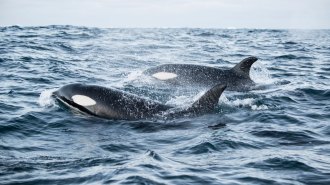 Animals
AnimalsSome killer whales hunt in pairs to maximize their bounty
Drone footage from Norway shows killer whales using a highly coordinated and cooperative hunting technique to catch herring.
-
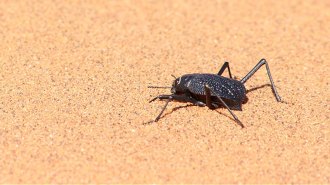 Animals
AnimalsThis desert beetle runs to cool off
After a sprint, the temperature of the beetle Onymacris plana drops. Efficient running, a body built for cooling and a little bit of lift all help.
-
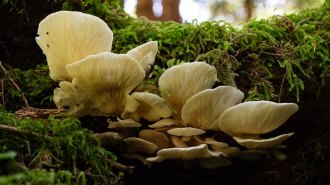 Health & Medicine
Health & MedicineClimate change may be pushing fungal allergy season earlier
Rising temperatures and changing rainfall patterns may be lengthening fungal allergy season, which starts 3 weeks earlier than it did two decades ago.
-
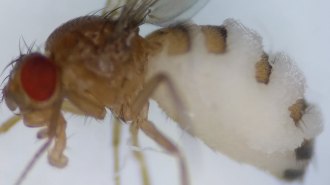 Life
LifeThis killer fungus strikes at sunset. Here’s how
The fungus Entomophthora muscae turns flies into zombies and kills them at sunset. An internal kill clock may explain the mysterious timing.
By Meghan Rosen -
 Health & Medicine
Health & Medicine‘Rehab’ exposes the dark underside of U.S. drug treatment centers
In Rehab, journalist Shoshana Walter investigates the systemic pitfalls of drug treatment programs, which prevent people’s recovery from addiction.
By Meghan Rosen -
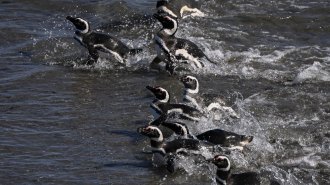 Animals
AnimalsSome penguins save energy by riding ocean currents
When navigating home, Magellanic penguins alternate between heading straight back in calm waters and swimming with the flow in strong ocean currents.
-
 Animals
AnimalsA dog’s taste for TV may depend on its temperament
Anxious dogs might react nervously to some television sounds, a survey of dog owners reports, while hyper ones might try to play chase.